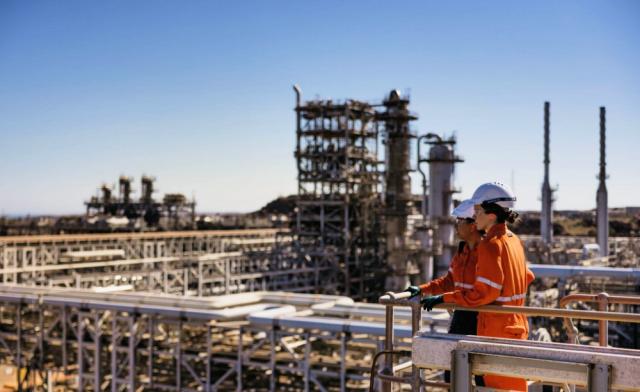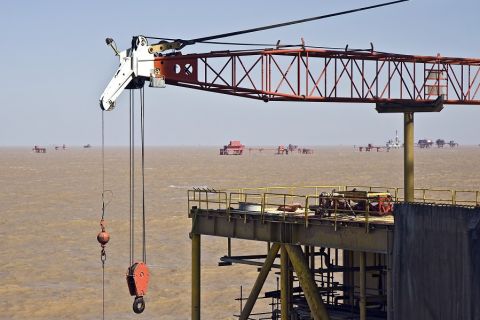
Located in the Scarborough Field in Carnarvon Basin offshore western Australia, Woodside Energy’s Scarborough gas project is projected to yield 8 million tonnes per annum of LNG. (Source: Jarrad Seng / Woodside Energy)
The Australian Conservation Foundation Inc. (ACF) is seeking an injunction to restrain Woodside Energy Group Ltd.’s Scarborough gas project, according to a recent Woodside press release.
Located in the Scarborough Field in Carnarvon Basin offshore Western Australia, the floating production unit is projected to yield 8 million tonnes per annum of LNG. The first LNG cargo from the Scarborough project is expected to arrive in 2026. However, ACF commenced proceedings in the Federal Court of Australia in an attempt to halt the Scarborough project until the environmental impact on Australia’s Great Barrier Reef is assessed.
Woodside CEO Meg O'Neill noted in a June 21 release that the project has already undergone environmental assessments by regulators such as the National Offshore Petroleum Safety and Environmental Management Authority, the Commonwealth Department of Agriculture, Water and the Environment and the Western Australian Environmental Protection Authority.
“The Scarborough project is underway and proceeding to schedule after receiving all primary environmental approvals,” O'Neill commented in the release. “The project will deliver significant local and national benefits in the form of employment, tax revenue and reliable gas supply in the energy transition for decades to come.”
Woodside approved the spending of $12 billion to develop the project in November 2021 alongside partner BHP Group. The company has since acquired BHP’s stake in the project.
In April, Woodside proceeded with both the Scarborough project and its Pluto LNG expansion project after receiving key approvals from the Australian and Western Australian state governments.
ACF argues the Scarborough project would create approximately 1.37 billion tonnes of greenhouse-gas pollution over the next 25 years and fuel climate change surrounding the Great Barrier Reef in Queensland.
“Scarborough’s gas is a climate bomb about to be detonated,” ACF CEO Kelly O’Shanassy said in a June 22 report. “If it goes ahead, the Scarborough gas mine and its Pluto extension will produce vast quantities of climate-heating gas for the next quarter of a century."
Recommended Reading
E&P Highlights: Jan. 29, 2024
2024-01-29 - Here’s a roundup of the latest E&P headlines, including activity at the Ichthys Field offshore Australia and new contract awards.
Seadrill Awarded $97.5 Million in Drillship Contracts
2024-01-30 - Seadrill will also resume management services for its West Auriga drillship earlier than anticipated.
Oceaneering Won $200MM in Manufactured Products Contracts in Q4 2023
2024-02-05 - The revenues from Oceaneering International’s manufactured products contracts range in value from less than $10 million to greater than $100 million.
E&P Highlights: Feb. 5, 2024
2024-02-05 - Here’s a roundup of the latest E&P headlines, including an update on Enauta’s Atlanta Phase 1 project.
CNOOC’s Suizhong 36-1/Luda 5-2 Starts Production Offshore China
2024-02-05 - CNOOC plans 118 development wells in the shallow water project in the Bohai Sea — the largest secondary development and adjustment project offshore China.





